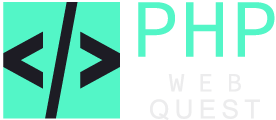13 Apr The Best PHP Alternatives For Web Development
PHP is one of the oldest and most used scripting languages for server-side development, and it’s powering over more than 42 million sites today on the world wide web, according to SimilarTech. PHP has certainly grown so much and matured over the course of 25 years, and the latest major release, PHP7 brought along many enhancements to the performance, boosting speed to up to 100% of that of PHP 5 and lowering the memory usage.
For those who never felt comfortable with PHP, however, here are some alternatives for PHP that you can use for server-side development, brought to you by https://nz.goldenrivieracasino.com/:
Python
One of the most popular programming languages in the world, Python is a highly powerful alternative to PHP for a wide range of web projects. That’s because it provides advanced functionality for superb performance, especially when it comes to processing and management of large data sets. That power takes the spotlight when your project contemplates numerous automation scripts and analytic systems.
Besides, Python has an interesting array of built-in functions specifically tailored to web development that allows you to build your project quickly while reducing the overall costs of development. Finally, Python is one of the languages used for developing machine learning algorithms, which means that your web project can get even more sophisticated with smart features.
Java
The other big contender in the programming world, Java is a strongly typed language that provides the discipline developers lack with PHP. In other words, Java gives you the ability to build cleaner and more structured code, which reduces the possibility of introducing the errors that PHP is more prone to introduce (especially in the hands of inexperienced engineers). Some casinos like online casino real money have employed the use of this language to build their site.
Highly portable and cross-platform, Java also has an impressive performance, thanks to its parallel task execution and its support for concurrency. What’s more – the language is better positioned when it comes to modularize your web applications, which ultimately impacts how easy it’ll be for you to create and update your applications. Finally, it’s worth mentioning that Java has plenty of powerful frameworks that make developing projects easier and quicker.
Go
If you prefer to pick a newer option than Python or Java, you can always choose Go, a relative newcomer to the web development field. Created and supported by Google, this programming language has a simple goal: to provide you with efficient tools and features to build highly scalable applications in the easiest way possible.
To achieve that goal, Go boasts a streamlined syntax that nonetheless supports task concurrency and parallelism. This is especially useful to build distributed applications, which are perfectly suited for optimal performance in cloud-based environments and corporate networks.

No Comments